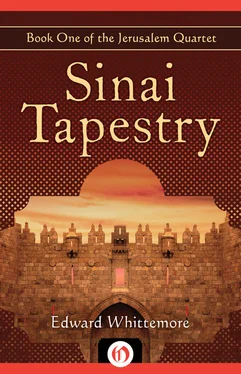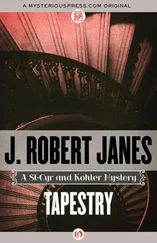Therefore he was renouncing his citizenship. Never again would he set foot west of the Red Sea. He then concluded with an array of scabrous allegations that surpassed even the obscenities found in Levantine Sex.
MADAME, YOU ARE A SMALL AND SMUG MOTHER RULING A SMALL AND SMUG COUNTRY. CERTAINLY GOD MADE YOU BOTH SMALL, BUT WHOM ARE WE TO BLAME FOR THE SMUGNESS?
IT WOULDN’T SURPRISE ME IF YOUR NAME IN THE FUTURE BECAME SYNONYMOUS WITH UGLY CLUTTER AND DARK PONDEROUS FURNITURE AND HIDDEN EVIL THOUGHTS, WITH ARROGANT POMPOSITY AND CHILD PROSTITUTION AND A WHOLE HOST OF OTHER GROSS PERVERSIONS.
IN SHORT, MADAME, YOUR NAME WILL BE USED TO DESIGNATE THE WORST SORT OF SECRET SEXUAL DISEASE, A PRIM HYPOCRISY INCOMPARABLY RANK BENEATH ITS HEAVY LAVENDER SCENT.
The address on the telegram was Hanover, England. It was signed Plantagenet, Arabia.
Thus the former deaf boy, lance in hand, who had once cleared his family manor of six hundred and fifty years of frivolous history, now felt he had found his vocation at last. The huge magnifying glass and bronze sundial were to be left behind. At the age of sixty he had decided to become a hakïm or healer curing the poor in the desert.
Of course he had no way of knowing that the influx of his immense fortune into Constantinople, nominal ruler of the desert in his day but already corrupt beyond hope, would ineluctably cause repercussions far beyond that city, until by the end of the nineteenth century not only the desert but the entire Middle East would in fact be the property of one man, a lean barefoot giant who spoke humbly as an Arab and was occasionally humiliated as a Jew, who was by then both an Arab and a Jew, an indistinguishable Semite living in a ragged opensided tent tending his sheep.
From Galilee he walked to Constantinople and began to set up the banks and concessions and subsidiaries that would allow his fortune to run without him. One day he was a Persian potentate, the next an Egyptian emir, the third a Baghdad banker.
He obtained a controlling interest in the posts and telegraph system, bought up all government bonds and issued new ones, became the secret paymaster of the Turkish army and navy, bribed the descendants of the Janissaries, consulted with pashas and ministers and laid aside trust funds for their grandsons, acquired rights to the wells in Mecca and all wells on all routes leading to Mecca, bought two hundred of the existing two hundred and forty-four industrial enterprises in the Turkish realm, dismissed and reappointed the Armenian and Greek and Latin Greek and Syrian Greek patriarchs in Jerusalem and the Coptic patriarch in Alexandria, leased four thousand kilometers of railway lines, established dowries for the daughters of the principal landowners between the Persian Gulf and the Anatolian highlands, refurbished the gold mosaics and polychrome marbles of Santa Sophia, so that by the time he was ready to leave the city anyone who could ever be in a position of power in that part of the world was under his control.
Although no one knew it, he had bought the Ottoman Empire.
Nor did anyone know he had already assured the destruction of the British Empire by sending it into a slow decline from which it could never recover. Some might date the decline from the day when his barbaric caravan had disembarked at Venice with its monstrous load of Eastern lore. Or a dozen years earlier when he had first sat down on the giant stone scarab in Jerusalem to expound that ruinous lore. Or even many years before that when he had hinted in a monograph on flowers that Englishwomen were known to sweat in the Levant.
But all these dates were too recent. One hundred years was a more likely span for the disintegration of a great empire, so probably the irrevocable course had been set on that warm Cairo night in 1840 when a laughing naked young Strongbow had turned his back on the reception celebrating Queen Victoria’s twenty-first birthday and leapt over a garden wall to begin his haj.
And now forty years later it was a rainy October afternoon when a tall gaunt man solemnly concluded his business in Constantinople and walked to a deserted stretch of the Bosporus, saw the clouds part and stood in a dripping olive grove watching the sun sink over Europe, then ceremoniously removed the rings and jeweled sandals and filigreed headgear of his last disguise, threw them into the passing waters and climbed back through the gnarled grove to disappear forever, barefoot now and wearing only a torn cloak, without even a bundle to carry, making his way south toward the Holy Land and perhaps beyond.
No one suspected the loss but Strongbow had taken far more than a great fortune away from Europe. He had also taken an irreplaceable vision that saw new worlds and sought them, a spirit that fed itself on the raw salads of mirages.
Never again would the West send out another Strongbow. After him there would be delegations and commissions, engineers and army garrisons, circulating judicial bodies and stray wanderers on camelback. These events were still to come but the greatest of all conquests was over, the expedition that could only be launched by one man from the vast legions he found in his heart.
As a destitute hakïm he no longer carried calomel or quinine or rhubarb grains. Now he cured solely through hypnotism.
His usual practice was to seat himself behind his patients so he couldn’t see their lips and read the words they thought they were saying, thus freeing himself to use his knowledge of the desert to listen to their true feelings. After a time he told the man or woman to turn and face him.
By then the patient was thoroughly accustomed to an empty vista and the sudden confrontation with the hakim’s huge immobile presence, especially his gaze, was overwhelming. Powerful, musing, contemplative, the great eyes bore down upon the patient, who was immediately under their control.
The hakïm said nothing in words. With his eyes he reshaped and repeopled the barren desert from the rich landscape of his patient’s mind, detecting distant drifts of sand and adjusting veils, adjusting costumes and revisiting forgotten corners, sampling the sound of the wind and sipping water from tiny wells.
As a botanist might, he planted seeds and nursed the seedlings into flowers. Gently he blew the flowers to and fro until their contours shimmered in the sun. Steadily he gauged the sweep of the horizons.
The eyes spoke a final time and the patient awoke from the trance. The hakïm told him to come again in a day or a week, and if the asthma or astigmatism hadn’t improved by then he would suggest they sit together once more staring at the desert.
At the same time the hakïm took the opportunity to explore a more personal question. Ever since he had left Jerusalem he had pondered deeply that obscure conversation in archaic languages between a mole and a hermit outside a cave on Mt Sinai. And having considered it carefully, he had come to believe that an astounding transformation had indeed occurred in that tiny cave, and that the Bible accepted as the oldest in the world was nothing more than a forgery of stupendous proportions.
Of course he had no way of knowing what was in the real Sinai Bible, he could only guess at its contents. Yet for some reason he was convinced it held the secret to his own life. A strange idea came to him then and he began asking his patients the questions he had been asking himself for so long.
Have you heard of a mysterious lost book in which all things are written? A book that is circular and unchronicled and calmly contradictory, suggesting infinity?
His patients stirred in the depths of their hypnotic trances. Sometimes they were slow to answer but the answers seemed always the same. They thought they had heard of the book. Parts of it might have been read to them when they were children.
Читать дальше












